The content of the article
Various factors that can act both externally and internally affect the work of all internal organs. With a condition such as heaviness in the stomach, many people have to deal with. In the abdominal region there are discomfort, burning, a noticeable severity, which may be accompanied by other unpleasant clinical manifestations - for example, bitterness in the mouth or a pungent smell from it, nausea, heartburn.
A bursting feeling in the stomach sometimes speak of simple overeating, but it also happens to be a sign of serious gastrointestinal pathologies. If a similar symptom occurs constantly, this should be the basis for visiting a medical institution, where competent specialists will help find the cause of this condition.
Causes
Most often, the following provoking factors cause a feeling of pain and discomfort in the abdominal region after eating:
- Eating plenty of food.
- Irrational organization of the time at which food is taken - for example, when the main reception is in the late evening. That is, during the whole day a person eats the minimum amount of food or doesn’t eat at all, and “stuffs” his stomach at night.
- The use at one time of inconsistent products.
- The abuse of sandwiches and other instant foods.
- Wrong drinking regimen.
- Therapy of any disease using potent drugs. As a result of this, beneficial microflora is inhibited, the functions of the immune system decrease, and characteristic pains in the abdominal cavity appear.
- Poisoning. It happens because a person eats low-quality or expired foods.
- Psycho-emotional overvoltage. Stressful and depressive states, long excessive stresses of the nervous system negatively affect the functioning of the whole organism, including the gastrointestinal tract. Basically, the pain is localized under the solar plexus and in the right side of the abdomen. In addition, such stresses lead to a slowdown in the metabolic process, the appearance of nausea, and a decrease in working capacity.
- Infectious diseases of the digestive tract. Severity may signal the development of any pathology in the gastrointestinal tract. Unfortunately, to determine what triggered the pain - natural processes (for example, overeating) or severe disruption of the stomach or other organ, is quite difficult.
- Pregnancy. Expectant mothers are often worried about heaviness in the stomach after eating. Why does this symptom occur? When carrying a child, discomfort in the abdominal region appears (especially in the first months of pregnancy). It becomes difficult for a pregnant woman to breathe; she feels aching pains all over her body. At the beginning of pregnancy, the expectant mother is always sick (sometimes slightly, but it happens, which is very strong). This phenomenon is considered a variant of the norm in the first and subsequent months, if provoked by a physiological process that occurs in the female body - the bearing of a child.
Severity in the organs of the gastrointestinal tract, caused by a negative factor from the outside or from the inside, must be treated promptly. To do this, you must go through the diagnostic procedures that the doctor will prescribe. In addition, the heaviness in the stomach after eating in expectant mothers can form due to the fact that an actively growing fetus begins to exert pressure on this organ, as a result, a pregnant woman suffers from nausea, vomiting, impaired appetite and other uncomfortable sensations. Routine examinations and consultations with a doctor observing pregnancy should be regularly conducted to assess the state of health, timely detection and treatment of disorders in the body.
If the severity in the organs of the gastrointestinal tract after eating occurs constantly, self-medication is extremely undesirable - to use drugs or folk remedies without a doctor's prescription. It is necessary to seek medical help as soon as possible, because the heaviness in the stomach is associated with the development of dangerous diseases.
Possible pathologies
Discomfort in the stomach after eating can be formed due to the fact that pathogenic microflora multiplies and develops. Diseases that cause abdominal pain can be caused by bacteria or infections. Most often, this symptomatology is provoked by the following diseases:
- Gastritis. Against the background of this disease, the gastric walls are irritated and inflamed, the organ is colonized by pathogenic bacteria, as a result of which hydrochloric acid is produced.
- Ulcer. The mechanism of the development of the disease is similar to gastritis. The stomach is covered with small ulcers that destroy its structure, as a result of which it cannot function normally.
- Pancreatitis It develops due to the long consumption of alcohol, malnutrition, damage to internal tissues, as well as insufficient production of enzymes.
- Lazy stomach syndrome. A condition that develops against the background of age-related changes or weakness of the lumbar muscles.
In addition, discomfort after eating in the digestive tract can occur due to the following diseases:
- pyloric stenosis;
- dysbiosis;
- the presence of parasitic microorganisms;
- cirrhosis of the liver;
- damage to the organs of the gastrointestinal tract of an infectious nature.
There are also some products that can provoke the occurrence of such symptoms. These include flour and confectionery; milk, legumes, tomatoes, chicken eggs.
To get rid of this phenomenon, you will need to undergo a full course of therapy, which can last several weeks. But first of all, it is necessary to establish the reason that caused it. After identifying and eliminating the provoking factor, the patient should follow the doctor's recommendations, which include preventive measures, in order to avoid the recurrence of symptoms.
Diagnostics
In order to get rid of the reason that caused heaviness in the stomach, it is necessary to undergo a comprehensive diagnosis, so that the right choice of therapy will become possible. It is necessary that the body that needs treatment be thoroughly examined and ready for the planned therapeutic procedures.
The first diagnostic measure is fibrogastroscopy, a way to study the digestive organs, and in which the endoscope is inserted into the patient’s body, a special device consisting of a flexible tube with fiber optics at the end. The endoscope is swallowed by the person being examined for a certain time. In addition, during this procedure, it is possible to take a certain amount of damaged tissue for subsequent diagnosis. The whole procedure lasts about half an hour.
In addition to this diagnostic measure, an ultrasound is prescribed to the patient. This type of study allows you to accurately determine the localization of organs, sizes, and also the features of their structure.
How to treat
Constantly uncomfortable sensations in the stomach represent the clinical manifestations of certain diseases or a disregard for one’s health. It takes a single day to restore the body, sometimes it will take a lot of time. Treatment consists of several stages and includes dietary adjustment, medication, folk remedies, and preventive measures.
To get rid of unpleasant symptoms, you need to seek medical help, namely a general practitioner.The doctor will conduct an examination and, if necessary, give the patient a referral to a narrow specialist - for example, a gastroenterologist.
Treatment
You can deal with discomfort in the digestive tract using such means as:
- antibacterial;
- choleretic;
- antispasmodic;
- enzymes.
The latter are used for stagnation in the gallbladder. During exacerbations, it is better to undergo therapy in a hospital setting.
However, the most important thing in the fight against heaviness in the stomach is a therapeutic diet. This is the only way to get rid of discomfort. The first one or two days it is recommended to starve, then switch to fractional nutrition. This means that you should eat small meals throughout the day. The number of meals per day should be approximately five to six. It is necessary that the volume of one serving was no more than a palm. Better the third and fourth day there are some broths. In the following days, you should eat dishes in semi-liquid form. You need to give up coffee, soda, smoked, sausage and pastry, fried foods.
If gastritis became a provoking factor that caused severity, then therapeutic measures are aimed at increasing the level of acidity. The doctor prescribes gastroprotective agents, for example, De-Nol.
In addition, it is recommended to include a large number of fruits in the diet to increase acidity.
If the severity in the stomach is caused by pancreatitis, then the treatment will consist in taking medication and following a diet.
It is necessary to monitor your own condition. If unpleasant symptoms appear only after eating, it is recommended to eat five to six times a day, but in small portions. It’s good to chew food. Smoked meats, fried, peppered, fatty dishes from the diet must be excluded.
Late dinner should be discarded. The last meal should take place no later than three hours before going to bed. Due to this, the discomfort in the stomach will be eliminated and the work of the nervous system will be normalized. Permanent stress is always detrimental to the functioning of the digestive organs.
Those who suffer from the heaviness that constantly occurs after eating in the stomach are advised to get rid of excess pounds. Internal fat deposits have an adverse effect on the functioning of the digestive tract. If compliance with the principles of proper nutrition does not bring the desired effect, then you can resort to folk remedies. For example, insist on medicinal herbs such as yarrow or chamomile, and drink half an hour before meals. Such a tool will help get rid of nausea, heaviness, heartburn and other symptoms associated with improper functioning of the digestive tract.
You should lead an active lifestyle, do exercises every day. 60 minutes before going to bed, it is recommended to drink a glass of kefir or eat an apple.
Drug therapy
To get rid of heaviness in the stomach, drugs are prescribed. It is better if the doctor will be engaged in the selection of the drug.
Self-medication, trusting the advertised drugs or experience to friends, should not be. What helped one can harm the other.
The most popular and effective drugs for stomach severity are:
- Allohol. The medication helps to remove bile from the body. Reception is carried out during exacerbations. The recommended dosage is 2 tablets after a meal.
- Festal. One tablet after a meal is prescribed. During exacerbated symptoms, two are taken: the first dose during meals, the other after. The course of therapy is 14 days. If the unpleasant manifestations do not disappear, then the drug is taken continuously. In addition, this tool is used to eliminate nausea after eating.
- Mezim. It is one of the most effective means, which allows you to instantly get rid of heaviness, nausea and other unpleasant phenomena.It contributes to the normalization of the functioning of the pancreas, due to which the work of the digestive organs improves. It is prescribed for dysbiosis, pancreatitis, peptic ulcer, gastritis. Reception is carried out after a meal. After this, you can not take a horizontal position for some time. In addition, it is forbidden to use the drug in drug therapy using other drugs.
- Smecta. The doctor may prescribe this remedy if the patient has gastrointestinal diseases. The drug in the form of a powder should be taken three times a day with exacerbated symptoms.
- Motilium. Helps to get rid of such manifestations as nausea, vomiting, heartburn.
Folk remedies
Buckwheat porridge well improves the functioning of the digestive organs. It is not recommended for people suffering from heaviness in the stomach to eat fresh fruits. It is better to give preference to dried fruits. Effectively cleanses the intestines, due to which it is possible to get rid of unpleasant symptoms in the abdominal region, boiled carrots or beets.
With severity and nausea, dill seeds will be beneficial. Pour boiling water over 50 g of raw materials and insist. Such a drug should be taken several times a day.
Effectively struggling with digestive problems, chamomile, which is taken in the form of decoctions. This should be done 30 minutes after eating.
General recommendations
To avoid the appearance of such uncomfortable manifestations as heaviness in the stomach, the following preventive measures must be observed:
- Proper healthy eating. All junk food should be removed from the menu: fast food, fried, fatty and spicy dishes, sweets and flour products.
- Compliance with the drinking regime. The recommended daily amount of fluid for an adult is approximately two liters.
- Fractional nutrition. Food should be consumed in small quantities at regular intervals, at approximately the same time. Due to this, metabolism will improve, as a result, food will be digested and absorbed faster. In the evening, it is not recommended to eat later than three hours before going to bed, otherwise the food will not have time to digest and will rot in the body.
- Regular examination. In order to timely detect any disturbances in the functioning of the digestive tract, you should regularly undergo a medical examination. It must be remembered that the success of treatment largely depends on how early the disease was discovered.
- Physical activity. Thanks to an active lifestyle, muscles will be maintained in good shape, and all internal organs will work properly.
Video: heaviness in the stomach after eating



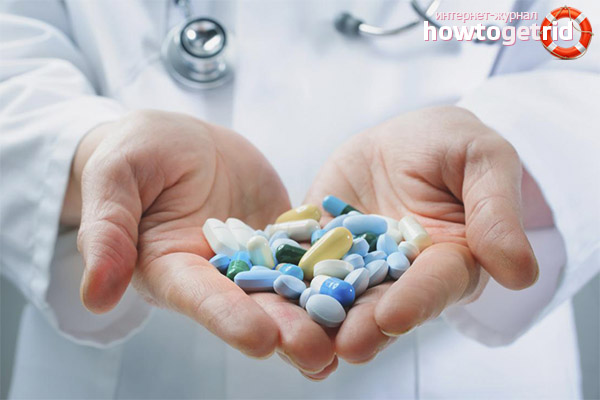
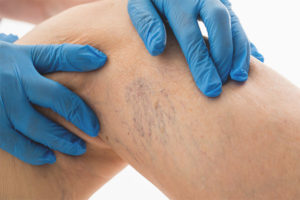
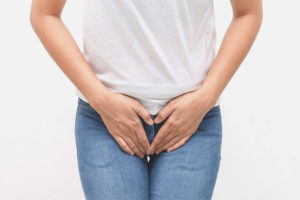
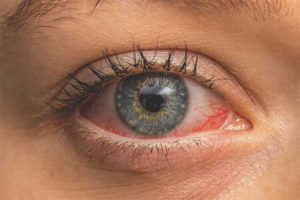


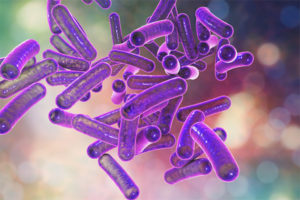


Submit